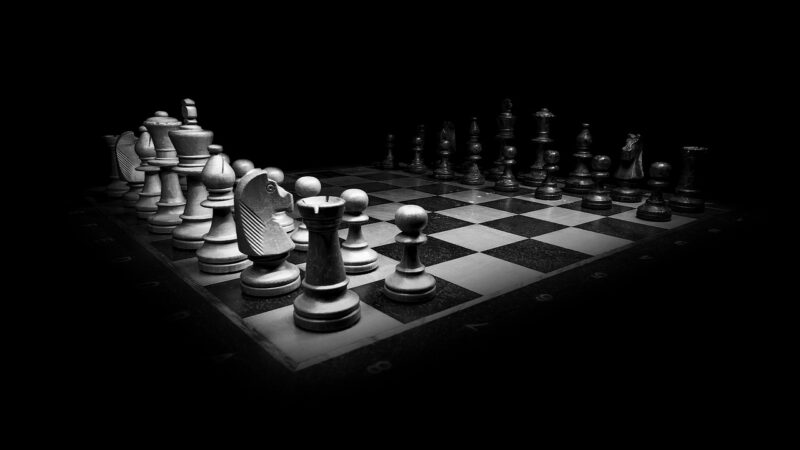How Playing Chess Can Improve Your Problem-Solving Skills and Memory
November 14, 2024

Chess is often regarded as the game of kings, one that transcends cultures and generations. However, beyond its royal status lies a world of cognitive benefits that make it a valuable tool for enhancing mental capabilities. In this article, we will explore how playing chess can significantly improve problem-solving skills and memory, paving the way for sharper thinking and enhanced mental agility.
1. The Cognitive Benefits of Chess
The game of chess involves complex strategies, foresight, and an understanding of both one’s own and the opponent’s potential moves. According to studies conducted by renowned cognitive scientists, playing chess can lead to improved cognitive function, particularly in children and adults alike. Here are some key cognitive benefits associated with chess:
- Enhanced Critical Thinking: Chess encourages players to think critically and analyze various situations. Players learn to assess risks, evaluate alternatives, and formulate strategic plans—essentially training their brains to be more analytical in real life.
- Improved Memory: Memorizing opening moves, patterns, and potential tactics is crucial in chess. Regularly engaging with the game enhances both short-term and long-term memory abilities, as players must constantly recall past games and positions.
- Boosted Creativity: Chess also requires creative thinking. Players must devise unique strategies and solutions to counter their opponents’ moves, fostering a vibrant mental creativity that can spill over into other areas of life.
These cognitive benefits highlight that chess is not merely a game; it is an exercise for the brain, akin to a workout regimen for physical fitness.
2. Problem-Solving Skills in Chess
Effective problem-solving is a critical skill in both academic and real-world scenarios. Chess provides an excellent platform to hone these skills through its structured nature and inherent challenges. Here’s how chess fosters problem-solving abilities:
- Strategic Planning: Each move in chess requires players to think ahead and consider possible future scenarios. This capacity for strategic foresight translates into improved problem-solving skills in everyday life, where anticipating outcomes is key to successful decision-making.
- Learning from Mistakes: An important aspect of chess is learning from previous games. When a player makes a poor move, they often analyze what went wrong and how they can improve. This reflective practice is crucial for developing robust problem-solving skills and resilience against future challenges.
- Dealing with Constraints: Chess imposes restrictions on players, forcing them to operate within a set framework while still striving for success. This ability to maneuver through constraints and find solutions under pressure is a valuable asset in solving real-world problems.
By engaging with chess, players naturally cultivate the ability to solve complex problems, which can lead to enhanced performance in various aspects of life, including academics and careers.
3. Memory Enhancement Through Chess
Memory is a complex cognitive function that can be significantly enhanced through consistent chess practice. Let’s delve into the ways chess impacts memory:
- Recall of Patterns: Chess players often remember specific patterns of moves known as “tactics.” Recognizing and recalling these patterns sharpens memory and can enhance someone’s overall ability to remember and retrieve information quickly in other contexts as well.
- Visual Memory Development: The ability to visualize the chessboard and anticipate future moves helps in improving visual learning and spatial awareness. This enhanced visual memory can aid in various educational pursuits and everyday tasks that require visual recognition.
- Cognitive Load Management: Chess forces players to balance multiple pieces and strategies simultaneously. This juggling act trains the brain to manage cognitive loads more effectively, improving memory capabilities in high-pressure situations like exams or presentations.
Through these memory-enhancing attributes, chess serves as a conduit for cognitive growth that extends beyond the game itself.
4. Chess in Education
Integrating chess into educational curriculums has shown promising results around the globe. Schools incorporating chess have reported improvements in student performance and behavior. Here’s why:
- Engagement and Attention: Students who participate in chess often become more engaged in learning. The game’s inherent challenges captivate their attention, resulting in better focus and participation in class activities.
- Holistic Development: Chess not only enhances cognitive abilities but also fosters social skills through its competitive nature. Through interactions with peers, students develop teamwork, resilience, and sportsmanship, contributing to their holistic development.
- Standardized Test Scores Improvement: Research indicates that students who engage in chess typically perform better on standardized tests. The critical thinking and strategic planning encouraged by the game are fundamental components of test-taking success.
By implementing chess into educational settings, schools can offer students valuable skills that will serve them throughout their academic and professional careers.
5. Encouraging Lifelong Learning
Playing chess is not merely a childhood pastime; it is a lifelong endeavor that continues to challenge and develop our minds. Here’s how it encourages lifelong learning:
- Continuous Improvement: Chess players are always learning and evolving. Each game offers lessons, and continuous participation fosters a mindset conducive to growth and improvement in every area of life—emphasizing the importance of lifelong learning.
- Social Connections: Chess is a community-oriented game. Players often join clubs or participate in tournaments, forging relationships with others who share their passion. These social connections enhance interpersonal skills and lead to enjoyable lifelong learning experiences.
- Adapting to Change: Chess is ever-evolving—as new strategies and tactics are developed, players must adapt to stay competitive. This adaptability translates into other life skills, allowing individuals to navigate changes effectively in various situations.
Engaging with chess promotes a love of learning that remains consistent throughout life, yielding cognitive and social benefits that enhance quality of life.
Conclusion
In conclusion, playing chess offers remarkable advantages for improving problem-solving skills and memory. As a mentally stimulating game, chess trains the brain to think strategically, improves memory retention, and enhances cognitive functions that are integral to success in various aspects of life. Whether you’re a novice or an experienced player, the benefits of chess extend far beyond the board, fostering personal development and encouraging lifelong learning.
Those looking to enhance their cognitive abilities would do well to embrace chess as a tool for growth. As you delve into the world of chess, you’ll find that each game is an opportunity to learn, evolve, and sharpen your mind for whatever challenges lie ahead.








